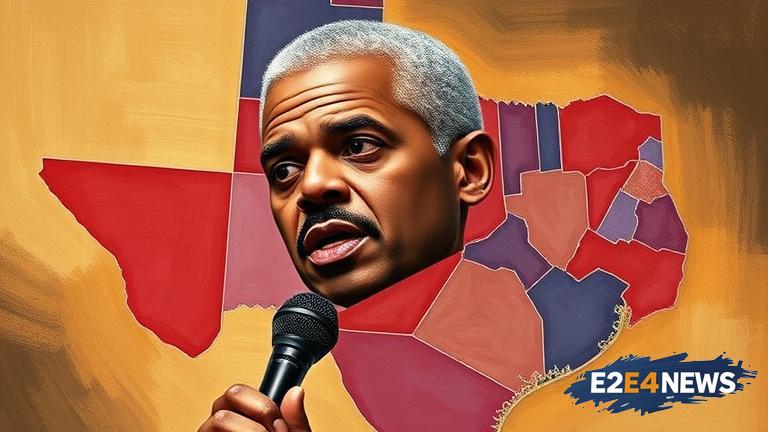The proposed Texas congressional map has come under scrutiny from former US Attorney General Eric Holder, who argues that it violates the Voting Rights Act. Holder, who served under President Barack Obama, has been a vocal advocate for voting rights and has challenged several states’ electoral maps in the past. The proposed map, which was recently released by Texas lawmakers, is set to be implemented for the upcoming elections. However, Holder and other critics argue that the map unfairly gerrymanders districts, diluting the voting power of minority communities. The Voting Rights Act, which was passed in 1965, prohibits states from implementing electoral maps that discriminate against racial or ethnic minorities. Holder’s challenge to the proposed map is based on the claim that it violates Section 2 of the Act, which prohibits voting practices that result in the denial or abridgment of the right to vote. The proposed map has been criticized for packing minority voters into a few districts, while spreading white voters across multiple districts. This, critics argue, reduces the voting power of minority communities and makes it more difficult for them to elect representatives of their choice. Holder’s challenge to the map is not the first time that Texas has faced criticism for its electoral maps. In 2018, a federal court ruled that the state’s electoral maps were discriminatory and ordered them to be redrawn. However, the Supreme Court later overturned the ruling, allowing the original maps to be used. The proposed map has also been criticized for its lack of transparency and public input. Critics argue that the map was drawn behind closed doors, without adequate input from the public or minority communities. The map has been praised by some Republicans, who argue that it is a fair and balanced representation of the state’s electoral landscape. However, Democrats and voting rights advocates have been quick to condemn the map, arguing that it is a blatant attempt to suppress the votes of minority communities. The challenge to the proposed map is set to be heard in court in the coming weeks, where a judge will determine whether it violates the Voting Rights Act. If the court rules in favor of Holder and other critics, the map could be forced to be redrawn, potentially altering the electoral landscape of the state. The case has significant implications for the upcoming elections, as well as for the broader debate over voting rights in the United States. As the country continues to grapple with issues of voter suppression and electoral fairness, the challenge to the proposed Texas congressional map is likely to be closely watched by voting rights advocates and politicians alike. The outcome of the case could have far-reaching consequences, potentially impacting the balance of power in Congress and the state legislature. The proposed map has also sparked debate over the role of the federal government in ensuring electoral fairness. Some argue that the federal government has a responsibility to protect the voting rights of all citizens, while others argue that states should be free to draw their own electoral maps without interference from the federal government. The challenge to the proposed map is likely to be a major test of the Voting Rights Act, which has been the subject of controversy and debate in recent years. As the case moves forward, it is likely to be closely watched by scholars, politicians, and voting rights advocates, who will be eager to see how the court rules on the issue. The proposed map has also raised questions about the impact of gerrymandering on electoral outcomes. Critics argue that gerrymandering can lead to a lack of competitiveness in elections, as well as a lack of representation for minority communities. The challenge to the proposed map is an attempt to address these issues and ensure that the electoral process is fair and representative of all citizens. The case is a reminder that the struggle for voting rights is ongoing, and that there is still much work to be done to ensure that all citizens have an equal voice in the electoral process.





